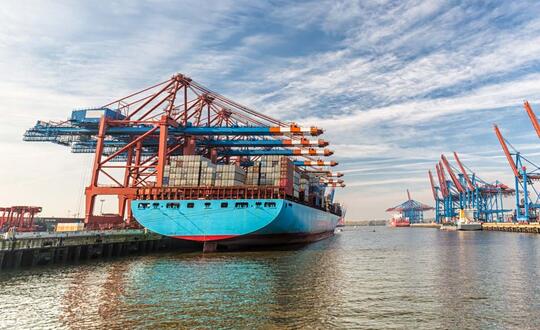
Richard Ballantyne, Chief Executive of the British Ports Association, is optimistic about the opportunities that Freeports will bring, but would like to see these improved regulatory environments rolled out to other ports to avoid economic displacement.
Ballantyne says:
"The Chancellor’s recent announcement of the eight winning Freeport bids in England was a major development for the UK ports industry. As is often the case with any Government scheme that looks to generate growth in specific areas there are challenges to be faced, and the lack of geographical inclusivity presented by the cap on the number of Freeports has raised questions from the ports in those regions that have not been selected. Those outside of the Freeport zones are nervous regarding economic displacement.
"Whilst this is an exciting idea, the Freeports also run the risk of moving jobs, new business growth and investment elsewhere in the country. The Government will understandably want to ensure that Freeports are successful and it is possible that further support is provided in the form of increased enterprise stimulus and transport and infrastructure funding. Where one region gains from this, those without Freeport status are concerned that this could lead to the Government, which normally avoids any type of intervention in ports and shipping markets, effectively picking winners and losers. This could also be the case in the devolved regions of the UK where the process is somewhat behind England. We, as an industry body, are therefore pushing policy makers to consider how an improved regulatory and business environment might be rolled out for all port locations to stimulate growth and investment.
"In general terms though the Government expects that Freeports are likely to be a net positive for the UK. Those regions that have awarded Freeport status have produced extremely positive estimates regarding job creation. Significantly, if achieved, the numbers of new jobs created at Freeports could almost triple the number of people employed at UK ports across the entire UK, and we would expect these jobs are likely to be skilled and well paid. Unfortunately, coastal regions are often areas of deprivation with higher levels of unemployment. This could mean there will certainly not be obvious labour shortages in Freeports, however the lack of relevant experienced workers, might create training and up-skilling challenges - although this issue in itself could become an opportunity. The solution to these issues might not necessarily appear overnight, however it’s amazing to see collaboration forming and discussions already underway between the education sector and Freeports. This is particularly with FE colleges looking at how they will focus on the skills required for the ports.
"More generally as the Freeports policy is rolled out this year, we would expect to see a communication drive across the new Freeports regions. Government are, we understand, also creating guidance and advice for Freeports and this should help third parties who may potentially want to be involved in Freeports, although this will involve a lot of discussion at a local level. Also looking forward there could be some modification of the Freeports concept. For example the geographic parameters and size of tax and customs zones are ridged at the moment. However it is uncertain whether a Freeport will look the same geographically in three or four years' time and some pragmatism on what the Freeports can do and how they can change could be required. Customs’ easements and facilitations underpinned the UK’s previous Freeports.
"Now however, the new model includes a wider suite of business friendly rules at ports. It is of course possible to achieve many of the customs benefits in Freeports through HMRC in the UK already, so instead other stimulus such as tax, planning, business rates and enterprise tools are included in the new model. We would suggest of course that the Government should think long and hard about an expansion of the Freeport status to more than eight ports across the country. Post pandemic and in a new economic environment outside the EU there is no better time to look at how ports can help grow the economy."



